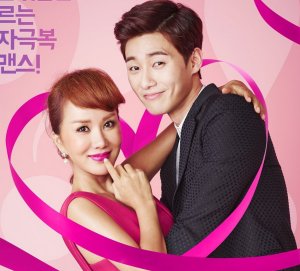This review may contain spoilers
Trying to understand the message
The rumours are true: this show is excellent until it takes a major swerve towards the end. And a lot of people (myself included) didn’t enjoy that swerve (although it was extremely effective as a gut punch). In my case, it’s not because I didn’t like the choice (although I didn’t), but rather that they didn’t explain it well enough. This leaves me trying to decide if this is a writing/direction fumble, or if their message is ultimately intended to be “realistically random”—the problem is, it’s not real life, it is a structured, fictional creation. I know someone chose this, which leaves me asking “why?”.
SPOILERS
I’m working this out as I go, so please bear with me.
TL; DR: it’s not their story, it’s HER story.
NHD’s fencing journey is great; I didn’t even mind that they “spoiled” her success and hand-waved her later accomplishments. The show was really only interested in her life until 21/22; everything after that (including the modern framing device) was only there to support that story.
The development of NHD’s relationship with BYJ was also great. It was playful and joyful and painful. And I think this is mostly thanks to her. She’s a poster child for the exuberance of youth. But where did it go?
The show decided to make NHD inadvertently replicate with BYJ the dysfunctional relationship she had with her mother. She ends up with someone distant, who hides/doesn’t share pain, is unreliable and self-centred (in that they are clinging to their career and prioritizing it to an insane degree and/or unable to integrate it with their life or loved ones), and shows love “in the background” with unrevealed actions (that hotel room!).
He is an intense first love and a lousy partner. She needs to get away from him.
NHD is herself the opposite of BYJ: (over)sharing, demonstrative, brave, confrontational, tenacious, reliable. Her “weaknesses” are mostly structural—getting the fencing/coaching opportunities she needs and also the “youth” opportunities that fencing largely precludes; avoiding victimization in unfamiliar settings (as with the documentary and the Internet hate). Rather than self-centred, she is focused. Rather than knuckling under to authority to get along or curry favour, she goes at the problem. Rather than withdrawing, she seeks out. Fencing is a fine metaphor for this—you face your problems and do battle with them.
BYJ tells NHD at one point that one of her best advantages is her mental fortitude (and, when she is younger, the “right to ask for help”). She is resilient. She has enough support when it counts, which allows her to stand on her own two feet when necessary.
He is not mentally strong. He runs away. He retreats into alcoholism. He loses himself in his work by overempathizing. I think he feels inferior.
Because BYJ is ultimately a failure—or perhaps succeeds at the only goal he actually set for himself, which was reuniting his family (but isn’t his dad still a fugitive?). Perhaps he is a victim of “the times” (the IMF crisis and 9/11). He is browbeaten by his father’s creditors until he gives up even the concept of happiness. His home is not so much broken as annihilated.
Yes, he’s handsome. He has the residual breeding of his upbringing and high school glory. But he’s not strong. He even wavers with NHD when he should have been more in control of his emotions.
His only real advantage is being four years older--and as time goes on and NHD matures, this advantage dwindles to essentially nothing.
He loses sight of his relationship with NHD once he’s in it. He detaches and still takes it for granted. NHD cannot escape her mother (or at least it would be more difficult). But she can escape him.
Is this the lesson the show wants to impart?
NHD does the right thing by breaking up/giving up. “You need therapy” was 100% accurate. “I can’t comfort you” was 100% accurate. “You are only with me in the good times; you withdraw in the bad times” (in other words, we aren’t really a couple) was 100% accurate.
He doesn’t appear in the modern framework. He is alluded to. He is present only in “historical” documents (her diary, old video clips). So in the end, this is really NHD’s story. How he developed later (family, whatever) is irrelevant. The show is her reminiscing through the mechanism of her daughter’s “rebellion”.
And I guess that’s okay. But if so, the Kdrama conventions didn’t really work for me. The “couple” structure obscured her story too much.
Still, this drama is well made and well worth a watch.
And NHD burns so bright in youth that we (like BYJ) can still warm our hands and take inspiration from her.
SPOILERS
I’m working this out as I go, so please bear with me.
TL; DR: it’s not their story, it’s HER story.
NHD’s fencing journey is great; I didn’t even mind that they “spoiled” her success and hand-waved her later accomplishments. The show was really only interested in her life until 21/22; everything after that (including the modern framing device) was only there to support that story.
The development of NHD’s relationship with BYJ was also great. It was playful and joyful and painful. And I think this is mostly thanks to her. She’s a poster child for the exuberance of youth. But where did it go?
The show decided to make NHD inadvertently replicate with BYJ the dysfunctional relationship she had with her mother. She ends up with someone distant, who hides/doesn’t share pain, is unreliable and self-centred (in that they are clinging to their career and prioritizing it to an insane degree and/or unable to integrate it with their life or loved ones), and shows love “in the background” with unrevealed actions (that hotel room!).
He is an intense first love and a lousy partner. She needs to get away from him.
NHD is herself the opposite of BYJ: (over)sharing, demonstrative, brave, confrontational, tenacious, reliable. Her “weaknesses” are mostly structural—getting the fencing/coaching opportunities she needs and also the “youth” opportunities that fencing largely precludes; avoiding victimization in unfamiliar settings (as with the documentary and the Internet hate). Rather than self-centred, she is focused. Rather than knuckling under to authority to get along or curry favour, she goes at the problem. Rather than withdrawing, she seeks out. Fencing is a fine metaphor for this—you face your problems and do battle with them.
BYJ tells NHD at one point that one of her best advantages is her mental fortitude (and, when she is younger, the “right to ask for help”). She is resilient. She has enough support when it counts, which allows her to stand on her own two feet when necessary.
He is not mentally strong. He runs away. He retreats into alcoholism. He loses himself in his work by overempathizing. I think he feels inferior.
Because BYJ is ultimately a failure—or perhaps succeeds at the only goal he actually set for himself, which was reuniting his family (but isn’t his dad still a fugitive?). Perhaps he is a victim of “the times” (the IMF crisis and 9/11). He is browbeaten by his father’s creditors until he gives up even the concept of happiness. His home is not so much broken as annihilated.
Yes, he’s handsome. He has the residual breeding of his upbringing and high school glory. But he’s not strong. He even wavers with NHD when he should have been more in control of his emotions.
His only real advantage is being four years older--and as time goes on and NHD matures, this advantage dwindles to essentially nothing.
He loses sight of his relationship with NHD once he’s in it. He detaches and still takes it for granted. NHD cannot escape her mother (or at least it would be more difficult). But she can escape him.
Is this the lesson the show wants to impart?
NHD does the right thing by breaking up/giving up. “You need therapy” was 100% accurate. “I can’t comfort you” was 100% accurate. “You are only with me in the good times; you withdraw in the bad times” (in other words, we aren’t really a couple) was 100% accurate.
He doesn’t appear in the modern framework. He is alluded to. He is present only in “historical” documents (her diary, old video clips). So in the end, this is really NHD’s story. How he developed later (family, whatever) is irrelevant. The show is her reminiscing through the mechanism of her daughter’s “rebellion”.
And I guess that’s okay. But if so, the Kdrama conventions didn’t really work for me. The “couple” structure obscured her story too much.
Still, this drama is well made and well worth a watch.
And NHD burns so bright in youth that we (like BYJ) can still warm our hands and take inspiration from her.
Was this review helpful to you?





